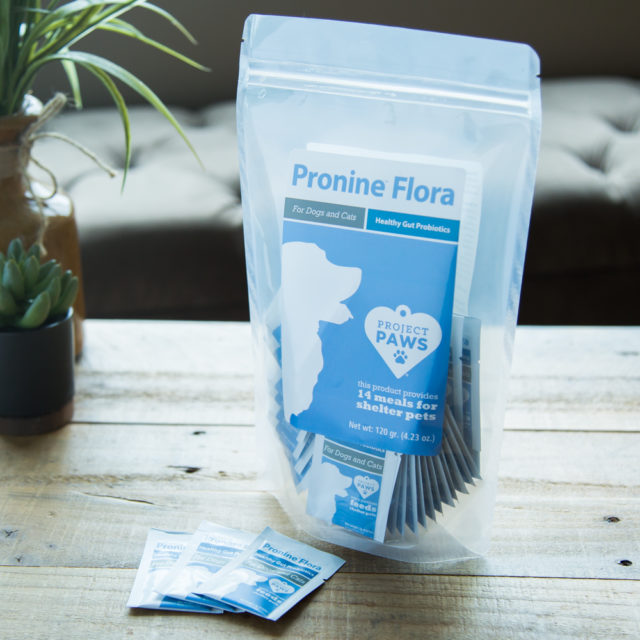Commercial dog food companies would like you to believe that their food is nutritionally complete and provides everything your dog needs to be healthy. Sadly, the bar for a “nutritionally complete” meal for dogs is appallingly low.
Sure, it will keep your dog alive, but it’s missing a variety of nutrients that are killed during the high heat processing and are, at best, sprayed down with synthetic vitamins at the end of the manufacturing process. If you aren’t feeding your dog a raw diet (or if you are, but don’t include entrails in your dog’s diet), then your dog is likely missing at least one vital nutrient in their diet.

What is a probiotic?
According to WebMD:
“Probiotics are live bacteria and yeasts that are good for your health, especially your digestive system. We usually think of these as germs that cause diseases. But your body is full of bacteria, both good and bad. Probiotics are often called ‘good’ or ‘helpful’ bacteria because they help keep your gut healthy.”
We’ve known for a while now about the benefits of probiotics for people. They can help to replace the good bacteria in our gut after we’ve been taking antibiotics – which don’t differentiate between good and bad bacteria – and they can help balance the good and bad bacteria in your digestive system on a regular basis to keep your body working the way it should. Probiotics also help food move through your digestive system by affecting nerves that control gut movement.

Where do dogs get healthy gut bacteria and digestive enzymes from?
Dogs’ bodies don’t produce enough digestive enzymes to process the food that they eat. Wolves eat the entrails of the animals that they kill, so they acquire many of the digestive enzymes they need from the prey that they eat. Since most modern dogs don’t eat entrails, and the processing of commercial dog food destroys any beneficial enzymes that might have made their way into the raw product, most pet dogs are lacking enough digestive enzymes in their diet and suffer from chronic low-grade gastrointestinal issues as a result such as vomiting, diarrhea, and loose stools.
You can watch this video of Dr. Karen Becker of Mercola Healthy Pets explaining this topic in greater detail to learn more.

Why dog food does not provide good gut flora
Commercial dog food typically does not include entrails and is processed using very high heat which destroys any enzymes which could possibly have made it into the food in the first place. Processed dog food also doesn’t contain any probiotics, which are crucial to your dog’s overall digestive health. Commercial dog food is a “dead diet” that lacks natural nutrients and enzymes. That’s why, unless you feed your dog entrails, it’s typically necessary to supplement his diet with a secondary source of digestive enzymes and probiotics.

Pronine™ Flora 4-in-1 Canine Probiotic, Prebiotic, Digestive Enzyme, Herb Supplement (60 ct)
If you’re ready to add digestive enzymes and probiotics to your pup’s diet, Project Paws® Pronine™ Flora is the most complete digestive supplement available for dogs! The 4-in-1 formula provides maximum benefit while saving you money. It contains probiotics, prebiotics, digestive enzymes, and gut-soothing herbs, perfect for maintaining your dog’s ideal gut flora balance. It’s veterinarian recommended and has a tasty chicken liver flavor your dog will love. Better than that, each purchase provides 14 meals for dogs in shelters!
Learn More About the Probiotic Formula Recommended by iHeartDogs
These statements have not been evaluated by the Food and Drug Administration. This product is not intended to diagnose, treat, cure, or prevent any disease. The information on this website is not intended to replace a one-on-one relationship with a qualified healthcare professional.
(H/T: WebMD, Mercola Healthy Pets)

 Toledo, United States.
Toledo, United States.